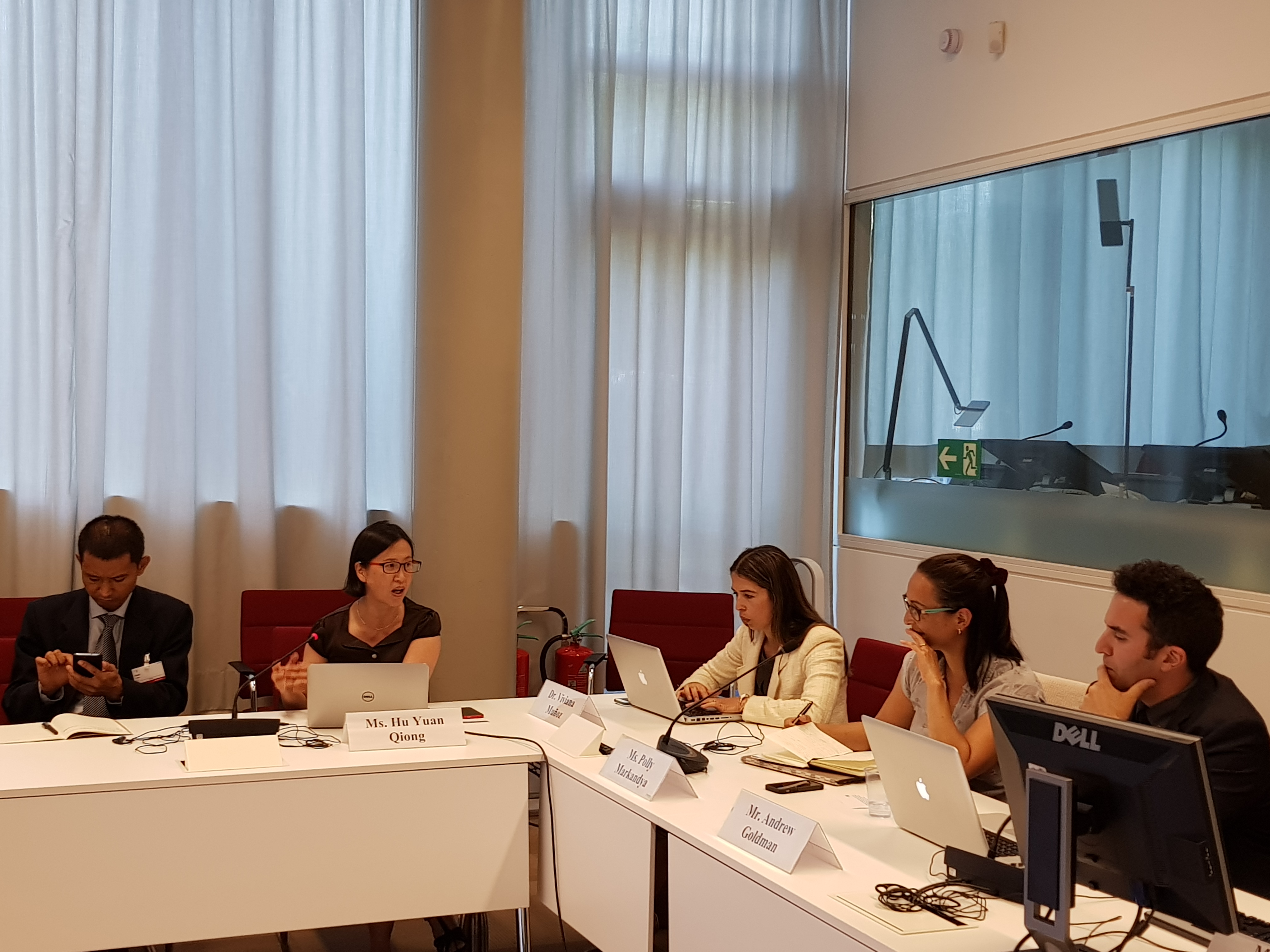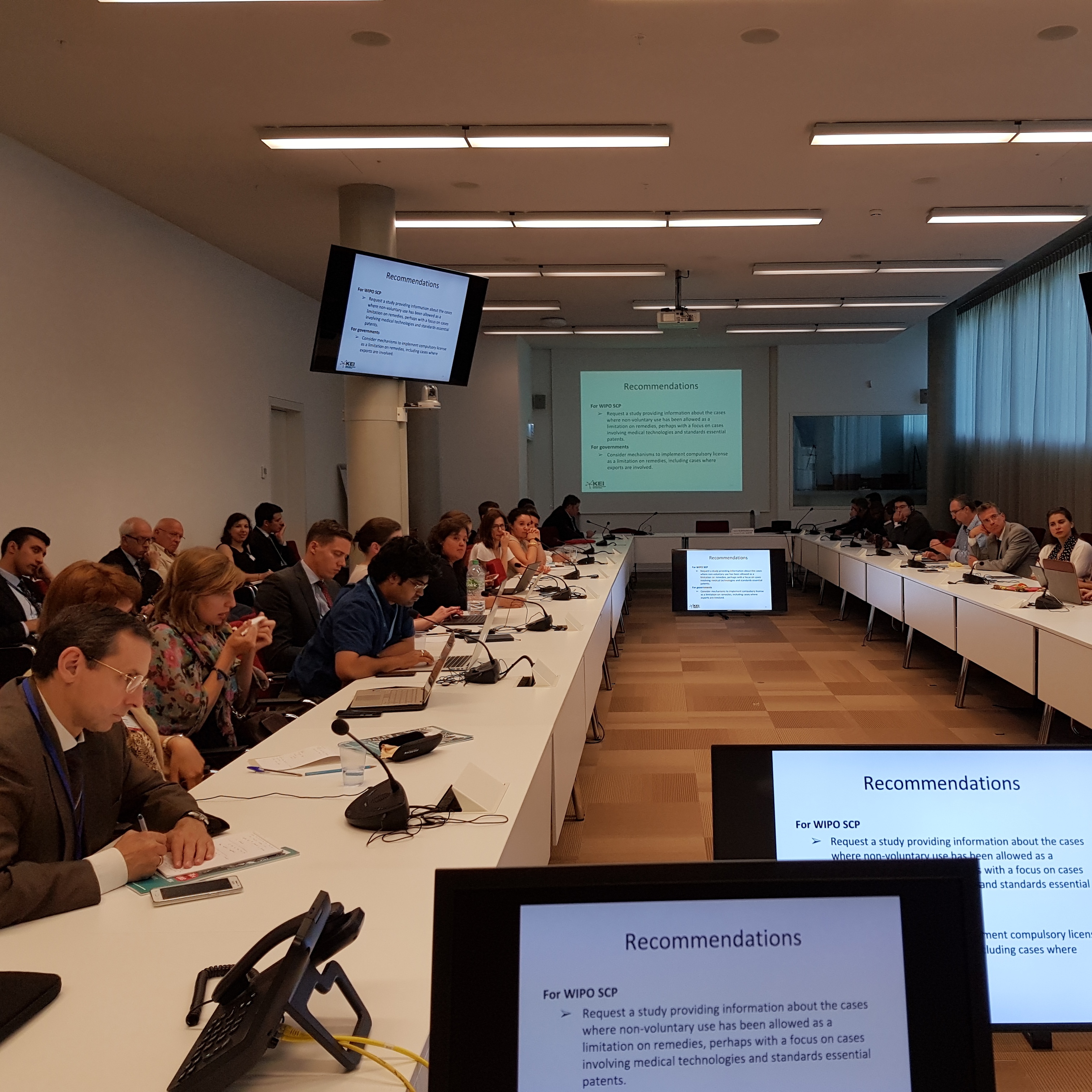Today at WIPO, KEI hosted a side event to discuss the ability of countries to deny injunctions in patent infringement cases.
My presentation focused primarily on the US law on injunctions, the interplay with (and between) relevant TRIPS articles, and how the equitable four-factor test has been applied post-eBay v. MercExchange. There is discussion of how injunctions have been denied in cases involving patents on medical technology, with particular emphasis in some cases on the public interest factor. The slides also demonstrate how the four-factor test has been applied in patent cases involving other technologies as well as in trade secrets cases, and also discusses developments in the field of standards-essential patents in the U.S. and internationally.
The panel was moderated by Polly Markandya, and the respondents were Yuan Qiong Hu of MSF and Dr. Viviana Munoz of South Centre.
My slides are available to download here.

The presentation concludes with a recommendation that
(1) WIPO SCP request a study providing information about the cases where non-voluntary use has been allowed as a limitation on remedies, perhaps with a focus on cases involving medical technologies and standards essential patents, and (2) that governments consider mechanisms to implement compulsory license as a limitation on remedies, including cases where exports are involved.

I was very grateful to the KEI staff for their assistance with and feedback on the presentation.
Elyse de Geyter wrote a piece on the event in IP-Watch, here: “KEI Recommends WIPO Study On Running Royalties As Limitation On Remedies”